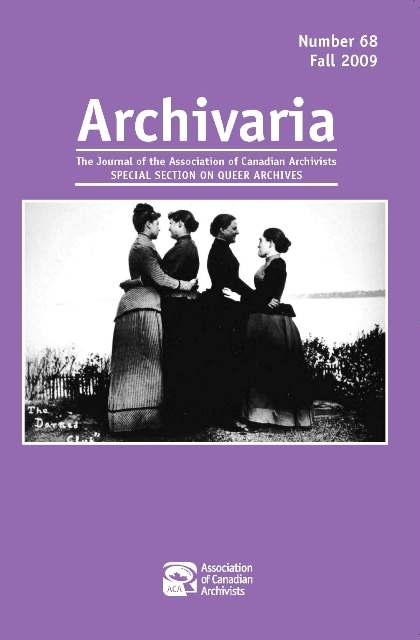From Digital Diplomatics to Digital Records Forensics
Abstract
Fifteen years ago, Elizabeth Diamond described the archivist as a forensic scientist. In the past few years, several archival writers have referred to professionals responsible for keeping digital records as trusted keepers or custodians. Undoubtedly, in the digital environment, record professionals are increasingly called to assess and preserve the authenticity of the records they are responsible for, and to act as neutral third parties. But, are they qualified to fulfill this role? This article aims to begin identifying the body of knowledge that a trusted record professional needs in order to assess the trustworthiness of digital records and ensure that their continuing authenticity can be demonstrated, if required, at any point during their life cycle. To do so, it presents some of the concepts developed by the InterPARES Project in the area of diplomatics of digital records; compares them with the relevant concepts of a relatively new discipline called digital forensics; discusses the methodologies used by the two disciplines; and proposes areas that can be jointly investigated by diplomatics and forensics experts to develop an integrated body of knowledge that might be called Digital Records Forensics.
RÉSUMÉ
Il y a quinze ans, Elizabeth Diamond décrivait l’archiviste comme un scientifique médicolégal. Depuis quelques années, plusieurs auteurs dans le domaine de l’archivistique ont qualifié les professionnels responsables de la préservation des documents numériques de conservateurs de confiance (« trusted keepers »), ou de gardiens (« custodians »). Sans doute, dans l’environnement numérique, on fait de plus en plus appel aux professionnels de l’information pour évaluer et préserver l’authenticité des documents dont ils sont responsables, et pour agir en tant que tierce parties neutres. Mais sont-ils qualifiés pour remplir ce rôle? Cet article tente d’identifier les connaissances que doit avoir le professionnel d’information de confiance pour être capable d’évaluer la véracité (« trustworthiness ») des documents numériques et pour assurer que leur authenticité puisse être démontrée, au besoin, à n’importe quel point dans leur cycle de vie. Pour ce faire, l’article présente des concepts développés par le projet InterPARES dans le domaine de la diplomatique des documents numériques; il compare ceux-ci aux concepts pertinents dérivés d’une discipline relativement nouvelle, le numérique médicolégal (« digital forensics »); il discute des méthodologies dont se servent les deux disciplines; et il propose des domaines qui pourraient être explorés conjointement par les experts en diplomatique et en numérique médicolégal afin de développer un corpus de savoir intégré que l’on pourrait nommer la science médicolégale des documents numériques (« Digital Records Forensics »).
Authors of manuscripts accepted for publication retain copyright in their work. They are required to sign the Agreement on Authors' Rights and Responsibilities that permits Archivaria to publish and disseminate the work in print and electronically. In the same agreement, authors are required to confirm that "the material submitted for publication in Archivaria, both in its paper and electronic versions, including reproductions of other works (e.g. photographs, maps, etc.) does not infringe upon any existing copyright." Authors of manuscripts accepted for publication retain copyright in their work and are able to publish their articles in institutional repositories or elsewhere as long as the piece is posted after its original appearance on archivaria.ca. Any reproduction within one year following the date of this agreement requires the permission of the General Editor.





